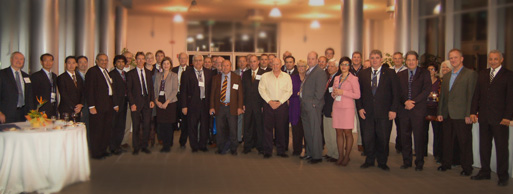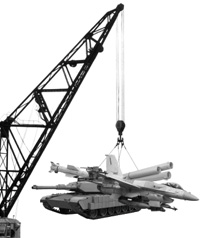
International Group to Conduct Collaborative Pilot Project Using Shared Small Satellite Data for Civilian Applications |
|

A Limited Objective Demonstration (LOD) has been formulated to demonstrate the Concept of Shared Small Satellites for CSSP (Collective Safety, Security and Prosperity), focusing on end-users of fisheries violations and environmental monitoring. Near Term GoalsThe LOD pilot project, to be implemented from January-May 2011 period, will consist of a private and public partnership including satellite data providers, supporting ground infrastructure, and end-users, who will contribute their resources through in-kind and cash contributions. Participants from both the private and public sectors have agreed to pool resources to conduct and lead this pilot study. A steering committee representing the technical, financial, legal, and end-user constituencies was created to oversee the LOD program in the coming months and pertinent details will be posted on the CANEUS website in the coming weeks. Organizations and / or countries interested in participating can send their expression of interest to: mp@caneus.org Mid and Long-Term GoalsIn parallel with the near term actions, the findings and recommendations from the CSSP workshop held on October 20-22 in Marina di Carrara, Italy, are being compiled in the workshop report that will be provided to all participants. This report will address the issues covering the proposed scope and structure and funding for the CSSP consortium, and will unfold the mid and long term implementation plans for the future. The goal of the workshop was to establish a global collaborative platform that would create an innovative low-cost, globally shared data collection and distribution infrastructure for space based data collection with exceptionally low barriers to entry for participating nations. Collective efforts aheadWhile there are many months of hard work and test demonstration ahead, the CANEUS Workshop laid the foundation imperative for a globally shared collaboration protocol and infrastructure. The workshop set out to identify user needs; assess current state of knowledge; determine the knowledge gaps; and formulated a future course of action. Furthermore, National and Regional situational awareness authorities provided a discussion of their policies and needs for data analyses and applications. Building on this foundation, the workshop next explored issues related to the space segment, ground segment, policies and regulations, and collaboration framework. The scope, structure, roadmap and costs for the CSSP International Collaboration charter were discussed to provide a basis for options for a proposed system. Included in these discussions were the aspects of a business model that revolved around the sharing of resources and the mitigation of cost for the benefit of all its members. Discussion further validated that AIS data would provide a valuable data set for a diverse group of end users and a pilot study was recommended as a means to carry the AIS collaborative platform forward. Not an Alternative but Complement and Improve Existing EffortsThe proposed CSSP Small Satellites system is not be an alternative to the efforts of the international community in the field, but an attempt to complement, improve upon and enhance existing efforts to be affordable and readily available by all participants. For more information about the CANEUS Shared Small Satellites CSSP International Workshop, visit www.caneus.org/cssp or email cssp@caneus.org. |
CANEUS Upcoming Events
|

